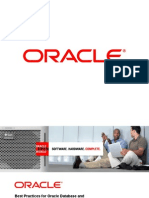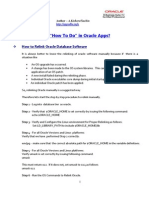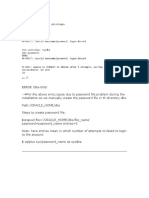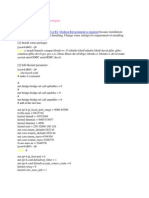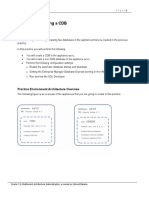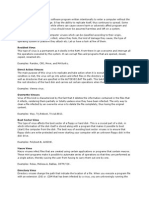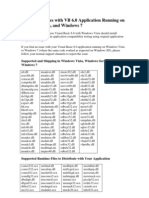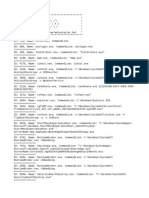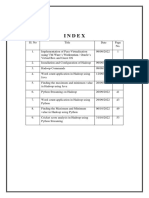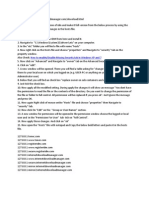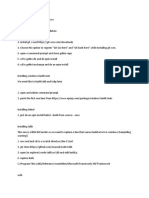0% found this document useful (0 votes)
19 views8 pagesCloning Oracle Home Using OUI-1
The document provides a comprehensive guide on installing Oracle Database binaries, focusing on efficient and repeatable installation methods, including silent installations and cloning techniques. It outlines the necessary steps for installing Oracle software, upgrading, and troubleshooting, as well as detailed methods for cloning an existing Oracle Home using Oracle Universal Installer (OUI), gold images, and manual methods. A checklist and step-by-step procedure for cloning Oracle 12c Home on Linux are also included, ensuring proper setup and validation post-installation.
Uploaded by
D PavanCopyright
© © All Rights Reserved
We take content rights seriously. If you suspect this is your content, claim it here.
Available Formats
Download as PDF, TXT or read online on Scribd
0% found this document useful (0 votes)
19 views8 pagesCloning Oracle Home Using OUI-1
The document provides a comprehensive guide on installing Oracle Database binaries, focusing on efficient and repeatable installation methods, including silent installations and cloning techniques. It outlines the necessary steps for installing Oracle software, upgrading, and troubleshooting, as well as detailed methods for cloning an existing Oracle Home using Oracle Universal Installer (OUI), gold images, and manual methods. A checklist and step-by-step procedure for cloning Oracle 12c Home on Linux are also included, ensuring proper setup and validation post-installation.
Uploaded by
D PavanCopyright
© © All Rights Reserved
We take content rights seriously. If you suspect this is your content, claim it here.
Available Formats
Download as PDF, TXT or read online on Scribd
/ 8









